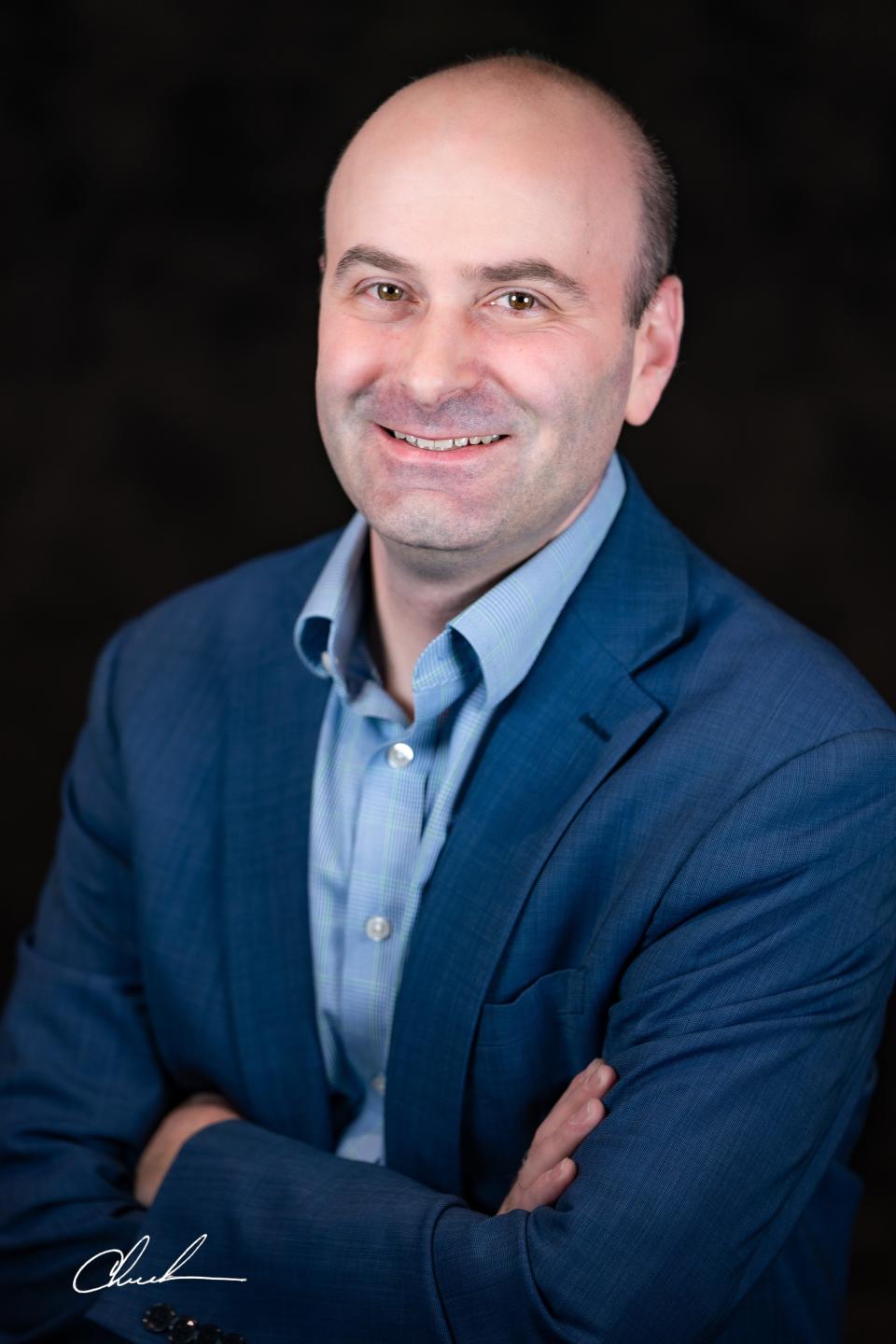'Ted Lasso' is can't-miss viewing when it comes to the lesson of kindness
- Oops!Something went wrong.Please try again later.
Like many others, I’m hooked on "Ted Lasso." I have already watched the first two seasons multiple times, and I now get excited every Wednesday knowing that a new episode will drop. Not only has the show won numerous awards, but the cast was even invited to the White House for a conversation about mental health awareness. I loved seeing the video of their visit and I am grateful for the way that they have raised and addressed this issue in their show.
But when I think about "Ted Lasso," I believe the reason for its success and the way it has captured people’s hearts is because at its core, the show is simply about kindness — something we all need and want more of in our lives and society. The show premiered in the summer of 2020, when we were in the midst of a heated and divisive election campaign. Kind was not a word that would have been used to describe the way people were behaving, treating one another, or in the way that they were speaking. It was against this backdrop that "Ted Lasso" filled our screens with kindness and offered an alternate vision of how we might behave and treat each other.

We often think about kindness as something that we do to benefit others, but studies are also conclusive that kindness is really healthy for the person performing the act — and it’s not just about a warm and fuzzy feeling. Psychologists have found that acts of kindness can lower blood pressure, serve to lower the stress hormone cortisol, and on the flip side, boost levels of serotonin and dopamine — which are sometimes known as the “happy hormones.”
If there were a free drug, with no negative side effects that boosted happiness and reduced stress, then I imagine everyone would be going to their doctor for a prescription. The fact that we can get these benefits from simply being kind may be surprising, especially as our society and world can often feel like an increasingly unkind place to be.
In the Biblical tradition, the Prophet Micah speaks to this issue with this question and answer: “What is good and what does God demand of you? Only that you do justice, love kindness, and walk humbly with your God” (Micah 6:8). When all is said and done, according to Micah, three things are required of us: justice, kindness and humility.
We might have expected that we would be told to “do kindness” or “live kindly,” but this is not the instruction. It is more important than this, and so we are told to “love kindness.” As we know, love requires more than just action; it requires faithfulness, commitment and above all, dedication for it to be achieved. And we also know that it is only by giving love that we can receive love.
Parents and teachers focus on teaching and imparting kindness to our children when they're young. It's one of the social skills that is emphasized in virtually every early childhood setting — we teach sharing, treating others nicely, saying please and thank you. We teach our youngest children kindness, but then at some point it gets relegated down our list of priorities. We begin to emphasize academic success; the acquisition, and often perfection, of skills; and the accumulation of degrees — and we forget about the importance of learning to be a good person, to be a kind person.
How different would our world and society be if throughout a person’s educational journey, they were required to take classes in kindness? There could be age-appropriate programs helping people to develop techniques to approach the world through a lens of kindness. And at the end of the semester there wouldn’t be a test to be completed under timed conditions; instead, learners could share stories of the times they were kind, the difference they were able to make, and the way that they helped make things better. I know that at Temple Shir Tikva and other religious institutions, the supplementary education programs do emphasize this learning for our children. But imagine if it were not just supplementary, but part of the core curriculum.
For now, public school classes in kindness seem like a dream for the future. But we do still have "Ted Lasso." And so, I would urge people to watch an episode or two of this wonderfully uplifting show. With Ted, Rebecca, Roy, Beard, Sam, Higgins and the entire Richmond team, we have some wonderful teachers about how to be kind, about what kindness can do, and how we can truly help each other if we really love kindness.
Danny Burkeman is senior rabbi at Temple Shir Tikva in Wayland.
This article originally appeared on MetroWest Daily News: Ted Lasso's greatest lesson is its emphasis on kindness

